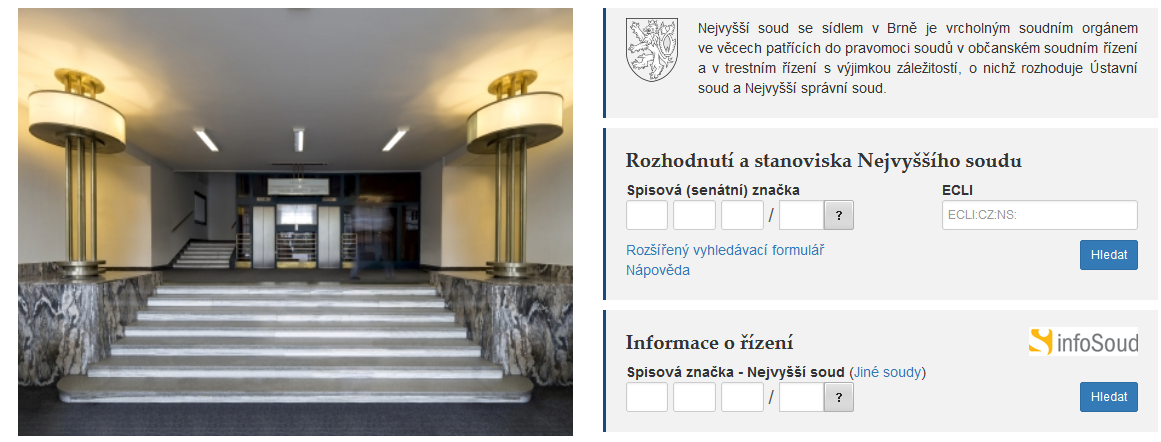
The Supreme Court has commented on the employer's liability for damage caused by its employee in performing his duties. In case of dependent work, the employee carries out the employer's instructions, so the employer is thus solely liable for the damage caused by the employee. For a person who performs tasks for an employer on his own behalf and at his own risk, the idea of employer liability generally does not apply unless the employer improperly selected him or failed to supervise him.
In the judgment of 26 October 2021, Case No. 25 Cdo 1029/2021, the Supreme Court dealt with the interpretation of Section 2914 of Act No. 89/2012 Coll., Civil Code (hereinafter "Civil Code") on liability for damage caused by an employee. The case in question concerned a situation where an employee of the defendant had dismantled and removed kitchen equipment from the plaintiff's canteen. The plaintiff subsequently sought the return of that item. The Supreme Court dismissed his appeal based on the reasoning below.
Section 2914 of the Civil Code is based on the idea that whoever benefits from the activity of a helper (in this case, an employee) should also bear the risks associated with his activity. It strengthens the protection of the potential victim since, in case of a breach of the legal duty of the person acting, he has the right to claim compensation from both. The employer will likely have more financial resources than the employee, and the injured party will thus have a better chance of recovering compensation.
In the case of an employee in an employment relationship who performs tasks assigned by the employer and commits damage, the court concluded that the employer is solely liable for the damage, also given the increased protection given to the employee by Act No 262/2006 Coll., the Labour Code. At the same time, however, the employee must not, in principle, deviate from the employer's instructions in the performance of his tasks.
If the employer hires a person to carry out tasks for him, who carries out the activity on his behalf and at his own risk, he is not liable for the damage caused by that person, except if he has not properly selected or supervised the person for the work in question. In such a case, he shall be liable for the faulty performance of the obligation under Section 2018 et seq. of the Civil Code, and performance may then be required under Section 2021(1) of the Civil Code.
The Supreme Court concluded this decision with the idea that the degree of autonomy or, on the contrary, the dependence of the will of the employee on the employer is essential for assessing the employer's liability for damage caused by another person in a particular case.
In this decision, the court did not address the issue of the employer's liability if the employee violates the law in the course of his work and thereby causes damage - for example, by failing to comply with traffic regulations causing a traffic accident. This issue is covered by Section 270 of the Labour Code, which states the exemptions of the employer's liability, also when the employee violates legal regulations to ensure safety at work, including traffic regulations. At the same time, the employee's guilt will also have to be assessed, as required by Section 250 of the Labour Code, the waiver will be only applicable if the employee acted knowingly. The guilt and its form will then have to be assessed based on the case's specific circumstances. The burden of proving fault generally rests with the employer.
Are you dealing with problems in the field of labour law? We will be happy to help you solve them.